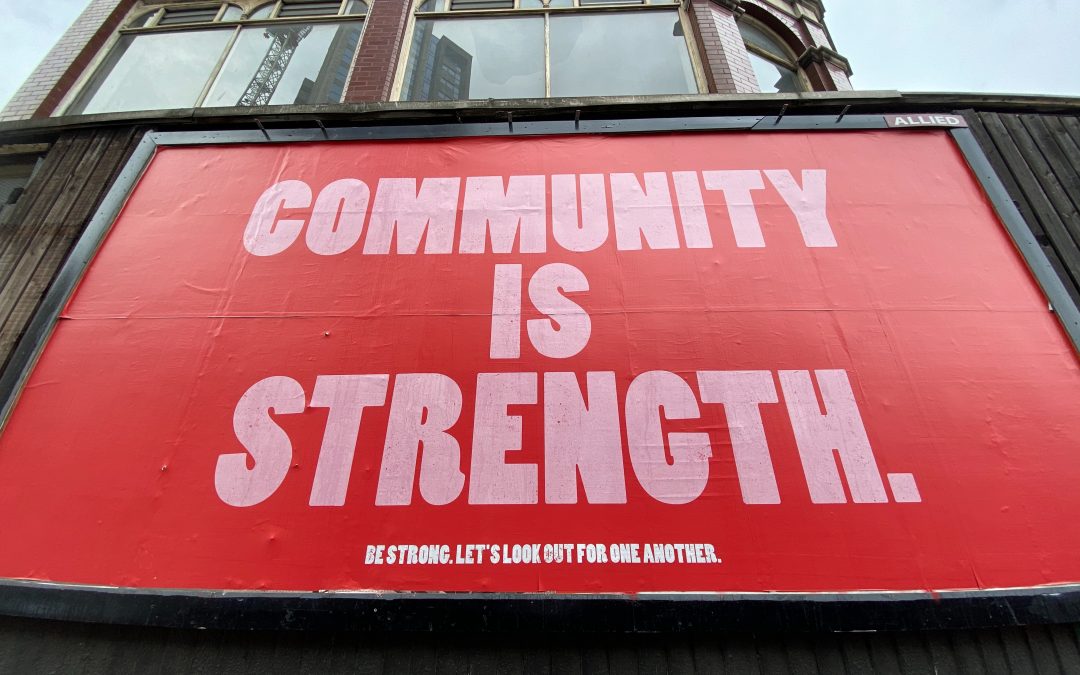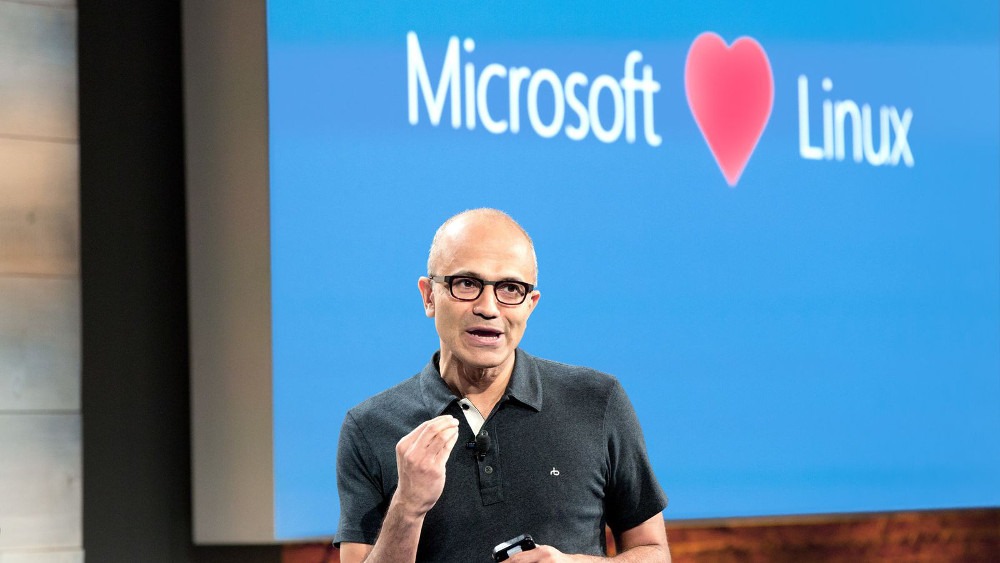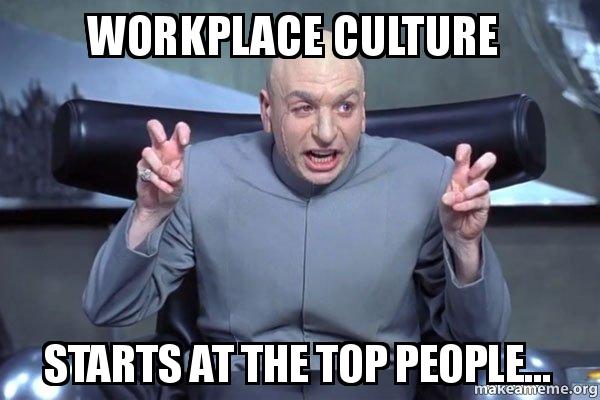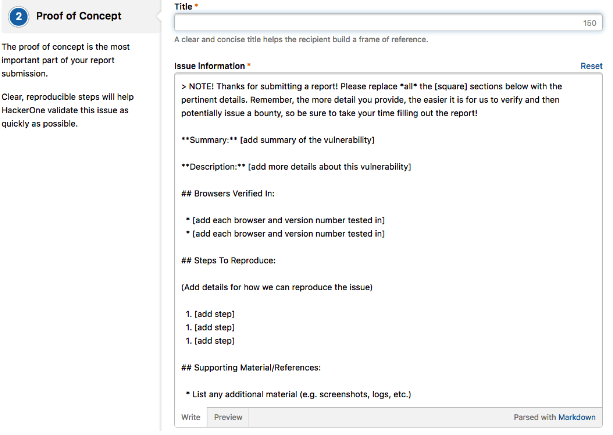
Luma Giveaway Winner – Garrett Nay
I little while back I kicked off a competition to give away a Luma Wifi Set.
The challenge? Share a great community that you feel does wonderful work. The most interesting one, according to yours truly, gets the prize.
Well, I am delighted to share that Garrett Nay bags the prize for sharing the following in his comment:
I don’t know if this counts, since I don’t live in Seattle and can’t be a part of this community, but I’m in a new group in Salt Lake City that’s modeled after it.
The group is Story Games Seattle: https://www.meetup.com/Story-Games-Seattle/. They get together on a weekly+ basis to play story games, which are like role-playing games but have a stronger emphasis on giving everyone at the table the power to shape the story (this short video gives a good introduction to what story games are all about, featuring members of the group:
Story Games from Candace Fields on Vimeo.
Story games seem to scratch a creative itch that I have, but it’s usually tough to find friends who are willing to play them, so a group dedicated to them is amazing to me.
Getting started in RPGs and story games is intimidating, but this group is very welcoming to newcomers. The front page says that no experience with role-playing is required, and they insist in their FAQ that you’ll be surprised at what you’ll be able to create with these games even if you’ve never done it before. We’ve tried to take this same approach with our local group.
In addition to playing published games, they also regularly playtest games being developed by members of the group or others. As far as productivity goes, some of the best known story games have come from members of this and sister groups. A few examples I’m aware of are Microscope, Kingdom, Follow, Downfall, and Eden. I’ve personally played Microscope and can say that it is well designed and very polished, definitely a product of years of playtesting.
They’re also productive and engaging in that they keep a record on the forums of all the games they play each week, sometimes including descriptions of the stories they created and how the games went. I find this very useful because I’m always on the lookout for new story games to try out.
I kind of wish I lived in Seattle and could join the story games community, but hopefully we can get our fledgling group in Salt Lake up to the standard they have set.
What struck me about this example was that it gets to the heart of what community should be and often is – providing a welcoming, supportive environment for people with like-minded ideas and interests.
While much of my work focuses on the complexities of building collaborative communities with the intricacies of how people work together, we should always remember the huge value of what I refer to as read communities where people simply get together to have fun with each other. Garrett’s example was a perfect summary of a group doing great work here.
Thanks everyone for your suggestions, congratulations to Garrett for winning the prize, and thanks to Luma for providing the prize. Garrett, your Luma will be in the mail soon!

Microsoft and Open Source: A New Era?
Last week the Linux Foundation announced Microsoft becoming a Platinum member.
In the eyes of some, hell finally froze over. For many though, myself included, this was not an entirely surprising move. Microsoft are becoming an increasingly active member of the open source community, and they deserve credit for this continual stream of improvements.
When I first discovered open source in 1998, the big M were painted as a bit of a villain. This accusation was largely fair. The company went to great lengths to discredit open source, including comparing Linux to a cancer, patent litigation, and campaigns formed of misinformation and FUD. This rightly left a rather sour taste in the mouths of open source supporters.
The remnants of that sour taste are still strong in some. These folks will likely never trust the Redmond mammoth, their decisions, or their intent. While I am not condoning these prior actions from the company, I would argue that the steady stream of forward progress means that…and I know this will be a tough pill to swallow for some of you…means that it is time to forgive and forget.
Forward Progress
This forward progress is impressive. They released their version of FreeBSD for Azure. They partnered with Canonical to bring Ubuntu user-space to Windows (as well as supporting Debian on Azure and even building their own Linux distribution, the Azure Cloud Switch). They supported an open source version of .NET, known as Mono, later buying Xamarin who led this development and open sourced those components. They brought .NET core to Linux, started their own Linux certification, released a litany of projects (including Visual Studio Code) as open source, founded the Microsoft Open Technologies group, and then later merged the group into the wider organization as openness was a core part of the company.
My personal experience with them has reflected this trend. I first got to know the company back in 2001 when I spoke at a DeveloperDeveloperDeveloper day in the UK. Over the years I flew out to Redmond to provide input on initiatives such as .NET, got to know the Microsoft Open Technologies group, and most recently signed the company as a client where I am helping them to build the next generation of their MVP and RD community. Microsoft are not begrudgingly supporting open source, they are actively pursuing it.
As such, this recent announcement from the Linux Foundation wasn’t a huge surprise to me, but was an impressive formal articulation of Microsoft’s commitment to open source. Leaders at Microsoft and the Linux Foundation should be both credited with this additional important step in the right direction, not just for Microsoft, but for the wider acceptance and growth of open source and collaboration.
Work In Progress
Now, some of the critics will be reading this and will cite many examples of Microsoft still acting as the big bad wolf. You are perfectly right to do so. So, let me zone in on this.
I am not suggesting they are perfect. They aren’t. Companies are merely vessels of people, some of which will still continue to have antiquated perspectives. Microsoft will be no different here. Of course, for all the great steps forward, sometimes there will be some steps back.
What I try to focus on however is the larger story and trends. I would argue that Microsoft is trending in the right direction based on many of their recent moves, including the ones I cited above.
Let’s not forget that this is a big company to turn around. With 114,000 employees and 40+ years of cultural heritage and norms, change understandably takes time. The challenge with change is that it doesn’t just require strategic, product, and leadership focus, but the real challenge is cultural change.
Culture is something of an amorphous concept. It isn’t a specific thing you can point to. Culture is instead the aggregate of the actions and intent of the many. You can often make strategic changes that result in new products, services, and projects, but those achievements could be underpinned by a broken, divisive, and ugly culture.
As such, culture is hard to change and requires a mix of top-down leadership and bottom-up action.
From my experience of working with Microsoft, the move to a more open company is not merely based on product-based decisions, but it has percolated in the core culture of how the company operates. I have seen this in my day to day interactions with the company and with my consulting work there. I credit Satya Nadella (and likely many others) for helping to trigger these positive forward motions.
So, are they perfect? No. Are they an entirely different company? No. But are they making a concerted thoughtful effort to really understand and integrate openness into the company? I think so. Is the work complete? No. But do they deserve our support as fellow friends in the open source community? I believe so, yes.

2017 Community Leadership Events: An Update
This week I was delighted to see that we could take the wraps off a new event that I am running in conjunction with my friends at the Linux Foundation called the Community Leadership Conference. The event will be part of the Open Source Summit which was previously known as LinuxCon and I will be running it in Los Angeles from 11th – 13th Sep 2017 and Prague from 23rd – 25th Oct 2017.
Now, some of you may be wondering if this replaces or is different to the Community Leadership Summit in Portland/Austin. Let me add some clarity.
The Community Leadership Summit
The Community Leadership Summit takes place each year the weekend before OSCON. I can confirm that there will be another Community Leadership Summit in 2017 in Austin. We plan to announce this soon formally.
The Community Leadership Summit has the primary goal of bringing together community managers from around the world to discuss and debate community leadership principles. The event is an unconference and is focused on discussions as opposed to formal presentations. As such, and as with any unconference, the thrill of the event is the organic schedule and conversations that follow. Thus, CLS is a great event for those who are interested in playing an active role in furthering the art of and science of community leadership more broadly in an organic way.
The Community Leadership Conference
The Community Leadership Conference, which will be part of the Open Source Summit in Los Angeles and Prague, has a slightly different format and focus.
CLC will instead be a traditional conference. My goal here is to bring together speakers from around the world to deliver presentations, panels, and other material that shares best practices, methods, and approaches in community leadership, and specific to open source. CLC is not intended to shape the future of community leadership, but more to present best practices and principles for consumption, and tailed to the needs of open source projects and organizations.
In Summary
So, in summary, the Community Leadership Conference is designed to be a place to consume community leadership best practices and principles via carefully curated presentations, panels, and networking. The Community Leadership Summit is designed to be more of an informal roll-your-sleeves up summit where attendees discuss and debate community leadership to help shape how it evolves and grows.
As regular readers will know, I am passionate about evolving the art and science of community leadership and while CLS has been an important component in this evolution, I felt we needed to augment it with CLC. These two events, combined with the respective audiences of their shared conferences, and bolstered by my wonderful friends at O’Reilly and the Linux Foundation, are going to help us to evolve this art and science faster and more efficiently than ever.
I hope to see you all at either or both of these events!

Luma Wifi Review and Giveaway
For some reason, wifi has always been the bane of my technological existence. Every house, every router, every cable provider…I have always suffered from bad wifi. I have tried to fix it and in most cases failed.
As such, I was rather excited when I discovered the Luma a little while ago. Put simply, the Luma is a wifi access point, but it comes in multiple units to provide repeaters around your home. The promise of Luma is that this makes it easier to bathe your home in fast and efficient wifi, and comes with other perks such as enhanced security, access controls and more.
So, I pre-ordered one and it arrived recently.
I rather like the Luma so I figured I would write up some thoughts. Stay tuned though, because I am also going to give one away to a lucky reader.
Setup
When it arrived I set it up and followed the configuration process. This was about as simple as you can imagine. The set came with three of these:
I plugged each one in turn and the Android app detected each one and configured it. It even recommended where in the house I should put them.
So, I plonked the different Lumas around my house and I was getting pretty reputable speeds.
Usage
Of course, the very best wifi routers blend into the background and don’t require any attention. After a few weeks of use, this has been the case with the Luma. They just sit there working and we have had great wifi across the house.
There are though some interesting features in the app that are handy to have.
Firstly, device management is simple. You can view, remove, and block Internet to different devices and even group devices by person. So, for example, if you neighbors use your Internet from time to time you can group their devices and switch them off if you need precious bandwidth.
Viewing these devices from an app and not an archaic admin panel also makes auditing devices simple. For example, I saw two weird-looking devices on our network and after some research they turned out to be Kindles. Thanks, Amazon, for not having descriptive identifiers for the devices, by the way. 😉
Another neat feature is content filtering. If you have kids and don’t want them to see some naughty content online, you can filter by device or across the whole network. You could also switch off their access when dinner is ready.
So, overall, I am pretty happy with the Luma. Great hardware, simple setup, and reliable execution.
Win a Luma
I want to say a huge thank-you to the kind folks at Luma, because they provided me with an additional Luma to give away here!
Participating is simple. As you know, my true passion in life is building powerful, connected, and productive communities. So, unsurprisingly, I have a question that relates to community:
What is the most interesting, productive, and engaging community you have ever seen?
To participate simply share your answer as a comment on this post. Be sure to tell me which community you are nomating, share pertinant links, and tell me why that community is doing great work. These don’t have to be tech communities – they can be anything, craft, arts, sports, charities, or anything else. I want you to sell me on why the community is interesting and does great work.
Please note: if you include a lot of links, or haven’t posted here before, sometimes comments get stuck in the moderation queue. Rest assured though, I am regularly reviewing the queue and your comment will appear – please don’t submit multiple comments that are the same!
The deadline for submissions is 12pm Pacific time on Fri 18th Nov 2016.
I will then pick my favorite answer and announce the winners. My decision is final and based on what I consider to be the most interesting submission, so no complaining, people. Thanks again to Luma for the kind provision of the prize!

All Things Open Next Week – MCing, Talks, and More
Last year I went to All Things Open for the first time and did a keynote. You can watch the keynote here.
I was really impressed with All Things Open last year and have subsequently become friends with the principle organizer, Todd Lewis. I loved how the team put together a show with the right balance of community and corporation, great content, exhibition and more.
All Thing Open 2016 is happening next week and I will be participating in a number of areas:
- I will be MCing the keynotes for the event. I am looking forward to introducing such a tremendous group of speakers.
- Jeremy King, CTO of Walmart Labs and I will be having a fireside chat. I am looking forward to delving into the work they are doing.
- I will also be participating in a panel about openness and collaboration, and delivering a talk about building a community exoskeleton.
- It is looking pretty likely I will be doing a book signing with free copies of The Art of Community to be given away thanks to my friends at O’Reilly!
The event takes place in Raleigh, and if you haven’t registered yet, do so right here!
Also, a huge thanks to Red Hat and opensource.com for flying me out. I will be joining the team for a day of meetings prior to All Things Open – looking forward to the discussions!

Bacon Roundup – 28th September 2016
Here we are with another roundup of things I have been working on, complete with a juicy foray into the archives too. So, sit back, grab a cup of something delicious, and enjoy.
To gamify or not to gamify community (opensource.com)
In this piece I explore whether gamification is something we should apply to building communities. I also pull from my experience building a gamification platform for Ubuntu called Ubuntu Accomplishments.
The GitLab Master Plan
(gitlab.com)
Recently I have been working with GitLab. The team has been building their vision for conversational development and I MCed their announcement of their plan. You can watch the video below for convenience:
Social Media: 10 Ways To Not Screw It Up (jonobacon.com)
Here I share 10 tips and tricks that I have learned over the years for doing social media right. This applies to tooling, content, distribution, and more. I would love to learn your tips too, so be sure to share them in the comments!
Linux, Linus, Bradley, and Open Source Protection
(jonobacon.com)
Recently there was something of a spat in the Linux kernel community about when is the right time to litigate companies who misuse the GPL. As a friend of both sides of the debate, this was my analysis.
The Psychology of Report/Issue Templates (jonobacon.com)
As many of you will know, I am something of a behavioral economics fan. In this piece I explore the interesting human psychology behind issue/report templates. It is subtle nudges like this that can influence the behavioral patterns you want to see.
My Reddit AMA

It would be remiss without sharing a link to my recent reddit AMA where I was asked a range of questions about community leadership, open source, and more. Thanks to all of you who joined and asked questions!
Looking For Talent
I also posted a few pieces about some companies who I am working with who want to hire smart, dedicated, and talented community leaders. If you are looking for a new role, be sure to see these:
- ClusterHQ Evangelist (based in San Francisco)
- data.world Director of Community (based in Austin)
From The Archives
Dan Ariely on Building More Human Technology, Data, Artificial Intelligence, and More (forbes.com)
My Forbes piece on the impact of behavioral economics on technologies, including an interview with Dan Ariely, TED speaker, and author of many books on the topic.
Advice for building a career in open source (opensource.com)
In this piece I share some recommendations I have developed over the years for those of you who want to build a career in open source. Of course, I would love to hear you tips and tricks too!

Looking for a data.world Director of Community
Some time ago I signed an Austin-based data company called data.world as a client. The team are building an incredible platform where the community can store data, collaborate around the shape/content of that data, and build an extensive open data commons.
As I wrote about previously I believe data.world is going to play an important role in opening up the potential for finding discoveries in disparate data sets and helping people innovate faster.
I have been working with the team to help shape their community strategy and they are now ready to hire a capable Director of Community to start executing these different pieces. The role description is presented below. The data.world team are an incredible bunch with some strong heritage in the leadership of Brett Hurt, Matt Laessig, Jon Loyens, Bryon Jacob, and others.
As such, I am looking to find the team some strong candidates. If I know you, I would invite you to confidentially share your interest in this role by filling my form here. This way I can get a good sense of who is interested and also recommend people I personally know and can vouch for. I will then reach out to those of you who this seems to be a good potential fit for and play a supporting role in brokering the conversation.
This role will require candidates to either be based in Austin or be willing to relocate to Austin. This is a great opportunity, and feel free to get in touch with me if you have any questions.
Director of Community Role Description
data.world is building a world-class data commons, management, and collaboration platform. We believe that data.world is the very best place to build great data communities that can make data science fun, enjoyable, and impactful. We want to ensure we can provide the very best support, guidance, and engagement to help these communities be successful. This will involve engagement in workflow, product, outreach, events, and more.
As Director of Community, you will lead, coordinate, and manage our global community development initiatives. You will use your community leadership experience to shape our community experience and infrastructure, feed into the product roadmap with community needs and requirements, build growth and engagement, and more. You will help connect, celebrate, and amplify the existing communities on data.world and assist new ones as they form. You will help our users to think bigger, be the best they can be, and succeed more. You’ll work across teams within data.world to promote the community’s voice within our different internal teams. You should be a content expert, superb communicator, and humble facilitator.
Typical activities for this role include:
- Building and executing programs that grow communities on data.world and empower them to do great work.
- Taking a structured approach to community roles, on-boarding, and working with our teams to ensure community members have a simple and powerful experience.
- Developing content that promotes the longevity and sustainability of fast growing, organically built data communities with high impact outcomes.
- Building relationships within the industry and community to be their representative for data.world in helping to engage, be successful, and deliver great work and collaboration.
- Working with product, user operations, and marketing teams on product roadmap for community features and needs.
- Being a data.world representative and spokesperson at conferences, events, and within the media and external data communities.
- Always challenging our assumptions, our culture, and being singularly focused on delivering the very best data community platform in the world.
Experience with the following is required:
- 5-7 years of experience participating in and building communities, preferably data based, or technical in nature.
- Experience with working in open source, open data, and other online communities.
- Public speaking, blogging, and content development.
- Facilitating complex and sensitive community management situations with humility, judgment, tact, and humor.
- Integrating company brand, voice, and messaging into developed content.
Working independently and autonomously, managing multiple competing priorities.
Experience with any of the following preferred:
- Data science experience and expertise.
- 3-5 years of experience leading community management programs within a software or Internet-based company.
- Media training and experience in communicating with journalists, bloggers, and other media on a range of technical topics.
- Existing network from a diverse set of communities and social media platforms.
- Software development capabilities and experience

Looking For Talent For ClusterHQ
Recently I signed ClusterHQ as a client. If you are unfamiliar with them, they provide a neat technology for managing data as part of the overall lifecycle of an application. You can learn more about them here.
I will be consulting with Cluster to help them (a) build their community strategy, (b) find a great candidate as Senior Developer Evanglist, and (c) help to mentor that person in their role to be successful.
If you are looking for a new career, this could be a good opportunity. ClusterHQ are doing some interesting work, and if this role is a good fit for you, I will also be there to help you work within a crisply defined strategy and be successful in the execution. Think of it as having a friend on the inside. 🙂
You can learn more in the job description, but you should have these skills:
- You are a deep full-stack cloud technologist. You have a track record of building distributed applications end-to-end.
- You either have a Bachelor’s in Computer Science or are self-motivated and self-taught such that you don’t need one.
- You are passionate about containers, data management, and building stateful applications in modern clusters.
- You have a history of leadership and service in developer and DevOps communities, and you have a passion for making applications work.
- You have expertise in lifecycle management of data.
- You understand how developers and IT organizations consume cloud technologies, and are able to influence enterprise technology adoption outcomes based on that understanding.
- You have great technical writing skills demonstrated via documentation, blog posts and other written work.
- You are a social butterfly. You like meeting new people on and offline.
- You are a great public speaker and are sought after for your expertise and presentation style.
- You don’t mind charging your laptop and phone in airport lounges so are willing and eager to travel anywhere our developer communities live, and stay productive and professional on the road.
- You like your weekend and evening time to focus on your outside-of-work passions, but don’t mind working irregular hours and weekends occasionally (as the job demands) to support hackathons, conferences, user groups, and other developer events.
ClusterHQ are primarily looking for help with:
- Creating high-quality technical content for publication on our blog and other channels to show developers how to implement specific stateful container management technologies.
- Spreading the word about container data services by speaking and sharing your expertise at relevant user groups and conferences.
- Evangelizing stateful container management and ClusterHQ technologies to the Docker Swarm, Kubernetes, and Mesosphere communities, as well as to DevOPs/IT organizations chartered with operational management of stateful containers.
- Promoting the needs of developers and users to the ClusterHQ product & engineering team, so that we build the right products in the right way.
- Supporting developers building containerized applications wherever they are, on forums, social media, and everywhere in between.
Pretty neat opportunity.
Interested?
If you are interested in this role, there are few options for next steps:
- You can apply directly by clicking here.
- Alternatively, if I know you, I would invite you to confidentially share your interest in this role by filling in my form here. This way I can get a good sense of who is interested and also recommend people I personally know and can vouch for. I will then reach out to those of you who this seems to be a good potential fit for and play a supporting role in brokering the conversation.
By the way, there are going to be a number of these kinds of opportunities shared here on my blog. So, be sure to subscribe to my posts if you want to keep up to date with the latest opportunities.

The Psychology of Report/Issue Templates
This week HackerOne, who I have been working with recently, landed Report Templates.
In a nutshell, a report template is a configurable chunk of text that can be pre-loaded into the vulnerability submission form instead of a blank white box. For example:
The goal of a report template is two-fold. Firstly, it helps security teams to think about what specific pieces of information they require in a vulnerability report. Secondly, it provides a useful way of ensuring a hacker provides all of these different pieces of information when they submit a report.
While a simple feature, this should improve the overall quality of reports submitted to HackerOne customers, improve the success of hackers by ensuring their vulnerability reports match the needs of their security teams, and result in overall better quality engagement in the platform.
Similar kinds of templates can be seen in platforms such as Discourse, GitLab, GitHub, and elsewhere. While a simple feature, there are some subtle underlying psychological components that I thought could be interesting to share.
The Psychology Behind the Template
When I started working with HackerOne the first piece of work I did was to (a) understand the needs/concerns of hackers and customers and then based on this, (b) perform a rigorous assessment of the typical community workflow to ensure that it mapped to these requirements. My view is simple: if you don’t have simple and effective workflow, it doesn’t matter how much outreach you do, people will get confused and give up.
This view fits into a wider narrative that has accompanied my work over the years that at the core of great community leadership is intentionally influencing the behavior we want to see in our community participants.
When I started talking to the HackerOne team about Report Templates (an idea that had already been bounced around), building this intentional influence was my core strategic goal. Customers on HackerOne clearly want high quality reports. Low quality reports suck up their team’s time, compromise the value of the platform, and divert resources from other areas. Similarly, hackers should be set up for success. A core metric for a hacker is Signal, and signal threshold is a metric for many of the private programs that operate on HackerOne.
In my mind Report Templates were a logical areas to focus on for a few reasons.
Firstly, as with almost everything in life, the root of most problems are misaligned expectations. Think about spats with your boss/spouse, frustrations with your cable company, and other annoyances as as examples of this.
A template provides an explicit tool for the security team to state exactly what they need. This reduces ambiguity, which in turn reduces uncertainty, which has proven to be a psychological blocker, and particularly dangerous on communities.
There has also been some interesting research into temptation and one of the findings has been that people often make irrational choices when they are in a state of temptation or arousal. Thus, when people are in a state of temptation, it is critical for us to build systems that can responsibility deliver positive results for them. Otherwise, people feel tempted, initiate an action, do not receive the rewards they expected (e.g. validation/money in this case), and then feel discomfort at the outcome.
Every platform plays to this temptation desire. Whether it is being tempted to buy something on Amazon, temptation to download and try a new version of Ubuntu, temptation to respond to that annoying political post from your Aunt on Facebook, or a temptation to submit a vulnerability report in HackerOne, we need to make sure the results of the action, at this most delicate moment, are indeed positive.
Report Templates (or Issue/Post Templates in other platforms) play this important role. They are triggered at the moment the user decides to act. If we simply give the user a blank white box to type into, we run the risk of that temptation not resulting in said suitable reward. Thus, the Report Template greases the wheels, particularly within the expectations-setting piece I outlined above.
Finally, and as relates to temptation, I have become a strong believer in influencing behavioral patterns at the point of action. In other words, when someone decides to do something, it is better to tune that moment to influence the behavior you want rather than try to prime people to make a sensible decision before they do so.
In the Report Templates example, we could have alternatively written oodles and oodles of documentation, provided training, delivered webinars/seminars and other content to encourage hackers to write great reports. There is though no guarantee that this would have influenced their behavior. With a Report Template though, because it is presented at the point of action (and temptation) it means that we can influence the right kind of behavior at the right time. This generally delivers better results.
This is why I love what I do for a living. There are so many fascinating underlying attributes, patterns, and factors that we can learn from and harness. When we do it well, we create rewarding, successful, impactful communities. While the Report Templates feature may be a small piece of this jigsaw, it, combined with similar efforts can join together to create a pretty rewarding picture.

My Reddit AMA Is Live – Join Us
Just a quick note that my Reddit Ask Me Anything discussion is live. Be sure to head over to this link and get your questions in!
All and any questions are absolutely welcome!






